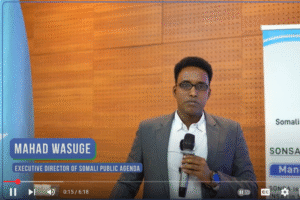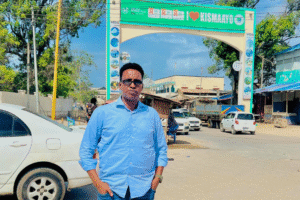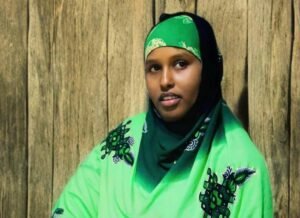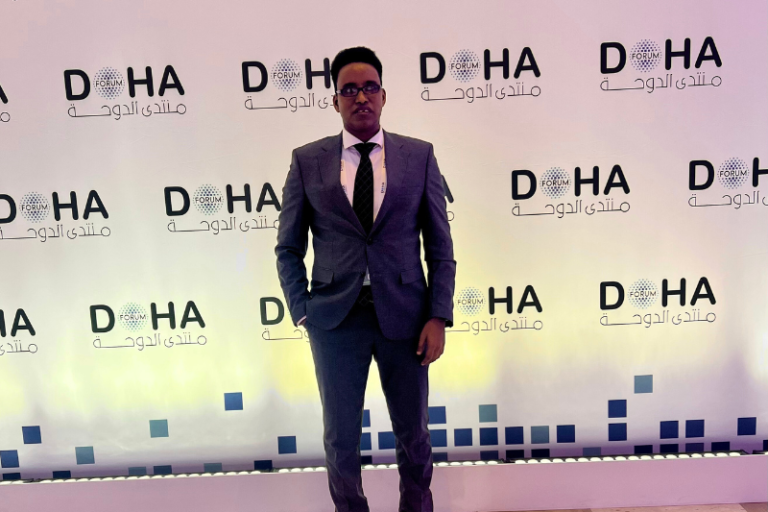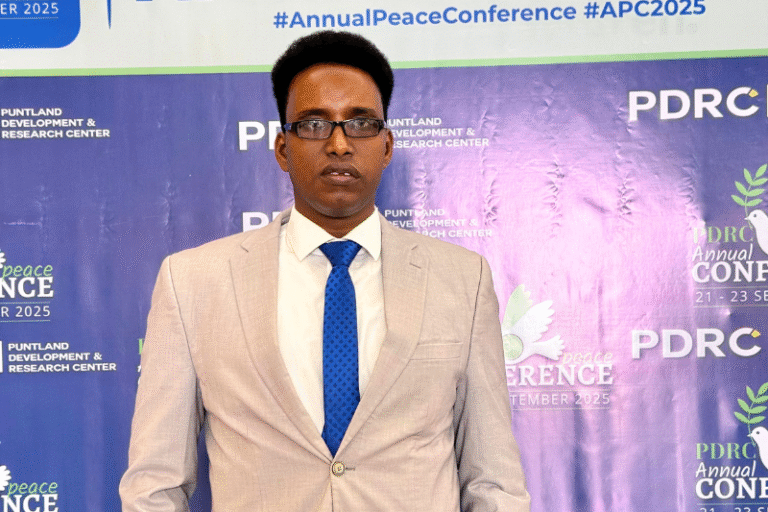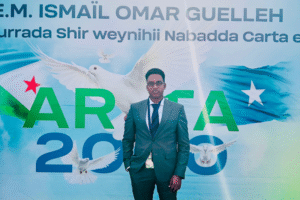
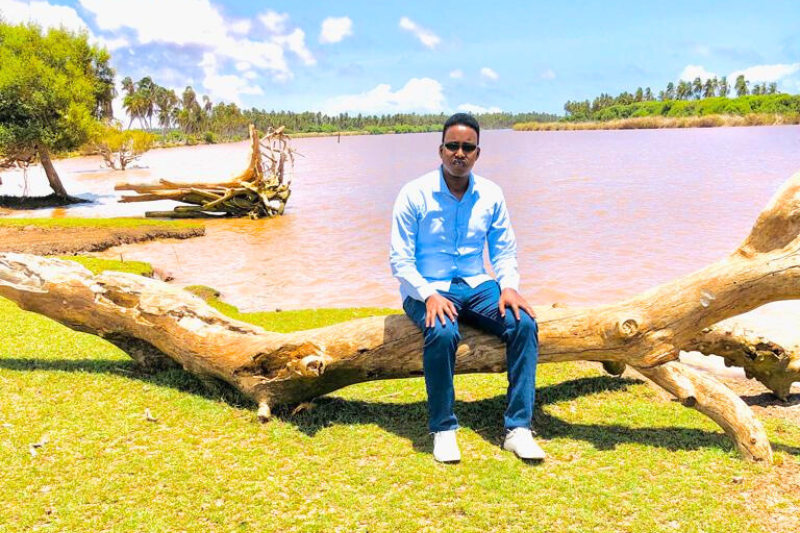
After about five years away, I traveled back to the coastal city of Kismayo, the capital city of the Lower Jubba region as well as the interim capital of Jubaland state. It was my fourth trip to the city. I traveled to the city in 2014, 2015, and 2016. Sayid Mohamed Abdulle Hassan, the famous religious and military leader of the Dervish Movement, had the city’s airport named after him in May 2019. Upon landing there, things were smooth, unlike the past where I was interrogated and asked of a guarantor before I was allowed in.
Having said this, the airport screening, especially when traveling from Kismayo is terrible. There are no screening machines. Each traveler has to be frisked at three separate checks. I had to open my bag and my computer three times at close-range checkpoints. When I expressed my feeling to one of the soldiers about how inconvenient the screening is, he asked to inform his leaders to bring the screening machine to the airport.
The airport is about 12 kilometers away from the town. On my way to the city, I saw charcoal loaded in a place near the airport. The sun was hot, and I immediately felt the links between the heat, climate change, and the ecologically destructive charcoal trade. The region did not get enough rain this season and is forecast to reach the verge of famine. Nonetheless, It would require a lot of effort to make people in Kismayo and its surroundings aware of the negative consequences of cutting trees and deforestation.
Kismayo is a coastal city. It is also close to where the Jubba River adds its water to the Indian ocean. The city has only one main water well drilled outside on the seaside of the town and its water is consumed across the city. The tap water is salty although some can afford to drink potable water processed by local companies in the city.
I arrived early in the morning, and I had some time to go around. My colleague, Ali, arranged a short visit to Goobweyn outside of the town a few hours after my arrival. We took a vehicle to get there.
We went through three checkpoints in a military camp although there is another road to use when going to Goobweyn. The first is a checkpoint staffed by the Somali forces. They interrogated us about where we were going. The second checkpoint is managed by the Ethiopian contingents of AMISOM (Kenya contingents are also in the town). They only let the vehicle pass when the details of the vehicle have been shared beforehand. An Ethiopian soldier asked how many of us are in the car, wrote down the number plate in a book, and allowed us to drive on. The Somalis at the first checkpoint passed our information to them. The Ethiopian soldier shared our information with other Ethiopian soldiers at the other end of the checkpoint who checked the plate number and allowed us to continue driving. There was a final checkpoint by SNA soldiers who were friendly.
Goobweyn is a beautiful and pleasant place. We could not go to the place where the Jubba River adds/connects its water to the Indian Ocean because of the heavy sand dunes. The places near Goobweyn are green, and there were farms near the river. Hundreds of camels, sheep, and goats were drinking water from the river. Nonetheless, all the livestock looked malnourished. Some other people who came as visitors like us were present and were taking photos. Children were swimming in the river. Other children were selling watermelon near the river. Some were fishing. The place is peaceful and everybody was busy with their own business. I appreciated the seemingly simple life of the area.

On one afternoon, I planned to visit the Kismayo’s Liido beach in Faanoole village together with friends from the city – Ahmed Kulmiye, Adan Mohamed, and Hefow. Initially, we went to another beach near Kibera islands best known as Ceel Caafimaad (it used to have a salty well, and when people drank its water, they used to discharge stool in liquid form quickly). We could not continue the trip as the road was closed. We decided to go to Liido beach. It was very beautiful. Youth were playing football on the sand. We had a long walk, took photos, and enjoyed the fresh sea air. Similar to Gobweyn, there were huge sand dunes near the beach.
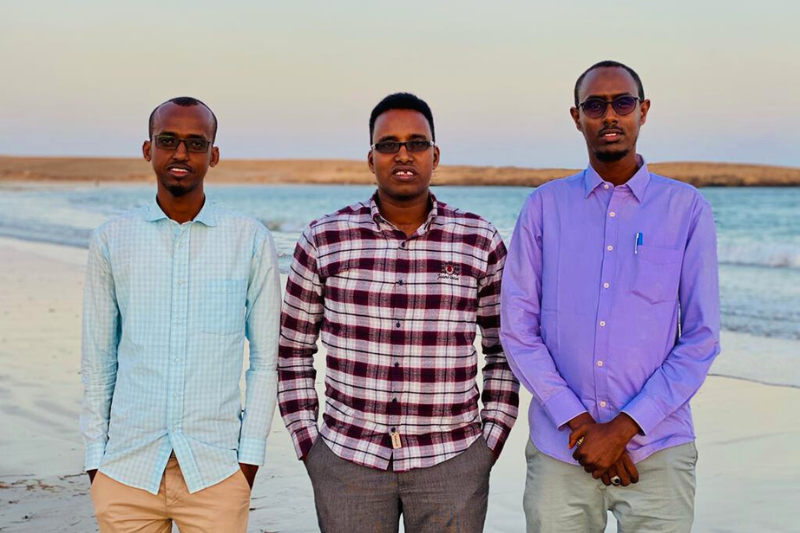
Although Kismayo has been the provisional capital city of Jubaland since the state was formed in 2013, its road infrastructure is poor. The roads have not been rehabilitated or constructed in a long time. Apart from the main tarmac roads, the feeder roads are narrow and disorganized. Two vehicles cannot cross on most of the feeder roads. And some roads take the form of a zigzag. I don’t know why it took such a long time to construct tarmac roads and reorganize the feeder roads in Kismayo, but it is an area that the administration and the local government need to prioritize.
Unlike other cities, bajaj transport is not allowed in Kismayo. It was probably banned for security reasons. People in the town use taxis instead. There are many transport companies with registered taxis in the town. There are also taxis owned by individuals. The taxi fare within the town is, however, quite cheap. They charge $1 per trip, which is almost similar, if not less, than the fare people using bajaj in Mogadishu pay. This reduction of tax fare is probably a result of the competition among the transport companies and the vast supply of taxis.
I have many friends in Kismayo. During my short stay in the town, I was able to meet with some of them including the former head of Kismayo University Abdulkadir Hikam. However, others I was unable to meet, including a young politician who was busy with the Upper House elections (though sadly, was not included in the list of contenders). Once I was back in Mogadishu, I also became aware of other friends who were in the town after I shared a photo on Facebook of myself at Goobweyn.
I enjoyed my short stay in the town and took the famous Halwo Kismayo (and also Halwo Safaari and Halwo Saabuuni) with me before I left the town. I wish the city and its people a bright future.
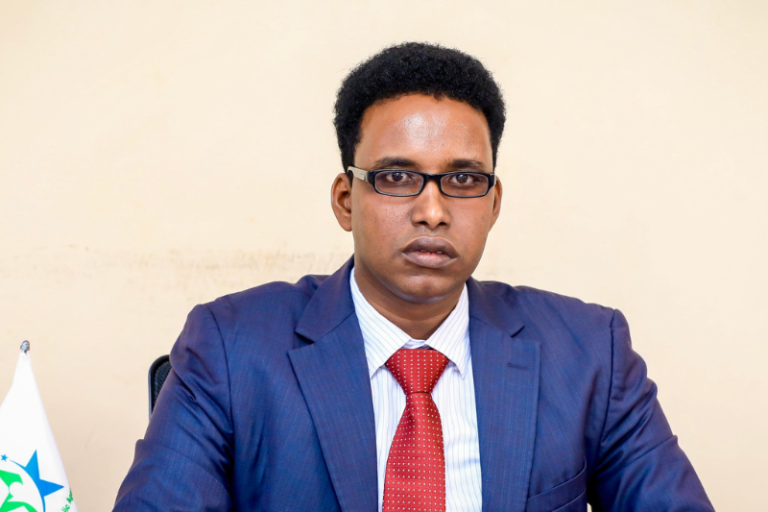
Is a researcher, teacher, podcaster and blogger. His work over the last decade has focused on teaching and researching governance, justice and social services in Somalia.


